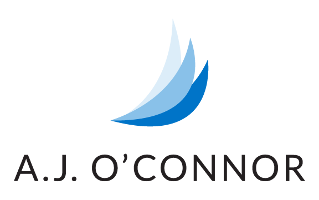
Coach’s Corner: Q&A with Shana Lory
 In our latest Coach’s Corner blog, we are pleased to invite you to get to know Shana Lory. Shana is a skilled facilitator and coach with expertise in leadership development and change management.
In our latest Coach’s Corner blog, we are pleased to invite you to get to know Shana Lory. Shana is a skilled facilitator and coach with expertise in leadership development and change management.
A former leadership facilitator at Citibank among other key roles, Shana focuses on teaching the critical soft skills and success-related attributes leaders and teams need to thrive and successfully manage change. She supports clients with techniques designed to identify their path and purpose while helping them bring balance between creativity and analytical skills to address and resolve challenging issues. We are thrilled to share her insights to our questions.
AJO: What’s a workplace trend that you think needs to change?
Shana Lory: There is a growing tendency for companies to express that our work relationship is like “family.” Or that working for a particular organization makes you part of a family. But this analogy needs to be used carefully. The term “family” can also mask inappropriate behavior or enable dysfunctional conduct. Being part of a family is an intimate bond that should be reserved for true family and not used to allow a blurring of boundaries in the workplace.
Work needs to be recognized for what it is, an exchange of skilled labor for money. Without respect for clean work boundaries, company cultures can become enablers of actions that can diminish a professional environment and even release responsibility for improper conduct.
Work shouldn’t be in those spaces that are meant just for you, as an individual. When work and personal life become indistinct, it can be very difficult for leaders to establish clear job expectations. It can also be challenging for employees to understand what is considered professional.
This is important as today’s companies see a generational shift in attitudes toward work. Where Baby Boomers and Gen Xers may have valued long work hours and rapid upward mobility, we are seeing Millennials and Gen Z workers have a different work perspective. They don’t want to give their heart and soul to work. They value their personal priorities and time first and want to decouple themselves from capitalism.
Workplaces that recognize these new generational dynamics will create a more engaged workforce. You don’t need a nap room or ping pong table to get employees to remain loyal. Instead, companies need to be respectful of their employees’ priorities and not expect to everyone to live for their job.
AJO: What’s one thing that can make or break a workplace culture?
Shana Lory: One of the top things that can create a toxic work environment is when policies and incentives are different at the top than for everyone else. If talk of financial rewards and expectations is just that, talk, it will break employee trust and impact employee confidence and productivity.
It’s important to remember that culture comes from what happens in those spaces in between. Leaders need to demonstrate consistency between the talk and action and remember the most important ingredients of culture are integrity and truth.
Every team has a culture that frequently stems from its leaders. Those that may be older in the position can impart more impact on culture. But be sure that the culture is additive to the work experience, not a detractor. Don’t, for example, just accept that “the way it’s always been done” is right. Listen and act on new ideas and inspire engagement throughout your teams. Then, when cultural values are established, be sure they are acted on with consistency to establish confidence and a vibrant culture that is truly embraced.
AJO: What’s one major obstacle today’s leaders need to be prepared to help their teams overcome?
Shana Lory: I’m consistently surprised by how often I see “imposter syndrome,” where leaders and individual contributors alike doubt their skills, talents or accomplishments. This fear that they are not good enough or don’t deserve their position and responsibilities can be very detrimental to personal career progression as well as company performance.
Younger leaders can often have the skill and talent for their role, but perhaps not the emotional maturity to embrace it or have the confidence they need to lead. Even older leaders can doubt their expertise. I like to work on a leader’s “inside game” to get them to grow into their role and fully embody the position they have. I look at what is going on emotionally and spiritually with them so that they can come to a place of complete self-acceptance. By raising up their inner knowing and interpersonal maturity, I can help leaders evolve to become more aware of how they are unique to lead. The result is often a leader with greater confidence with more realistic expectations and human awareness.
AJO: What’s one piece of advice you wish you’d gotten as a young professional?
Shana Lory: As a young professional, I wish I had had better role models for what “professional” really is. Early in our careers we learn from the leaders around us about how to operate and where the lines of work start and stop. Bad behavior from the top can influence how we behave throughout our careers if we don’t consciously grow and evolve to do better.
Young professionals need to discover how to bring their authentic self to work in a way that is helpful and productive. Too much personal sharing can diminish career growth. Too little can stall the professional relationships that create a rich work experience. This is a careful balance that every young professional needs to come to know. Great, healthy mentorship can be a significant help.
AJO: What’s one workplace prediction you have for 2023?
Shana Lory: Throughout this time of work from home, COVID and the phenomenon of “quiet quitting,” companies have increased their attention on team building. This is highly valuable and can have a great impact on employee loyalty and engagement. But it shouldn’t be considered a one-off activity.
I predict that 2023 will be the year of team building. As we move into the new year, I expect companies to realize that creating thriving teams must be an ongoing and consistent practice. True results only come from constant effort and practice.
Just as you can’t expect to be healthy just because you ran a mile one day, you can’t assume you have a productive team with just one team-building experience. As you add new people into the mix things change and teamwork becomes vital to team well-being. Likewise, if teams shrink, team building remains critical to ensure that individuals remain engaged and energized. Only with team building persistence will we all face the consistent wave of workplace change that 2023 may have in store.

